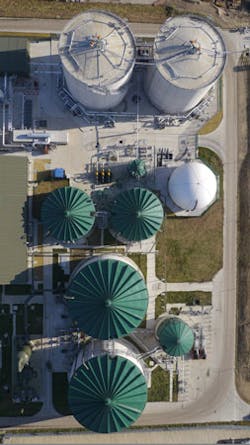There is an old adage in the construction industry; ’expensive today, cheap tomorrow’. With the stakes being so high on product performance within the anaerobic digestion (AD) market, it is time for end users to seriously consider their project liability portfolios, particularly when there is more than one supplier on a single project.
The operating parameters for mechanical and other equipment within the AD sector are demanding. More often than not, clients are looking for a process solution bespoke to their own technologies. Balmoral Tanks believes versatility, forward thinking and innovation is vital in meeting those demands while remaining relevant and competitive in the marketplace.
With so much work going into the front end of projects, has the industry started to take its eye off the ball with regards to the end product? After all, it is the end product that will be put under the microscope when the switch is turned on. It’s the end product that actually forms the product liability portfolio. With good practice and thorough review, in this era of quality assurance and product compliance, products leaving the factory gates should be of good quality, suitably tested and ready to go.
Balmoral encourages clients to witness the moment their products come off the manufacturing line so they can see the factory testing first hand and take that confidence away with them. Quality is a minimum expectation nowadays, not a differentiator.
No company operates in a perfect world and product issues do occur; these should always be dealt with in a timely, professional and customer friendly manner. That said, the most important factor for clients is that they know Balmoral can and will deal with any issues - it is recognised as the company’s responsibility. This sentiment, and the security it provides, is something the industry needs to focus on, particularly when the manufactured product arrives on site to be built or used.
This is where the market has seen significant and recent issues at national and international levels. Products purchased via a multi-channel supply chain are manufactured by one company, can be delivered by another company and frequently installed by yet another organisation.
With so many points of responsibility it could be very difficult to know who to call if that dreaded issue arises during installation or, even worse, when the tanks are full and in operation. Who is actually accountable for the end product and who is liable for the warranty certificate if procurement is carried out through a multi-channel system?



